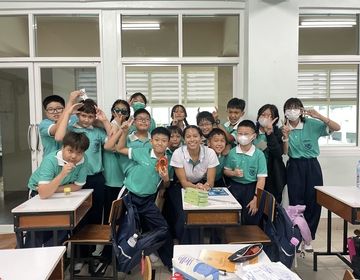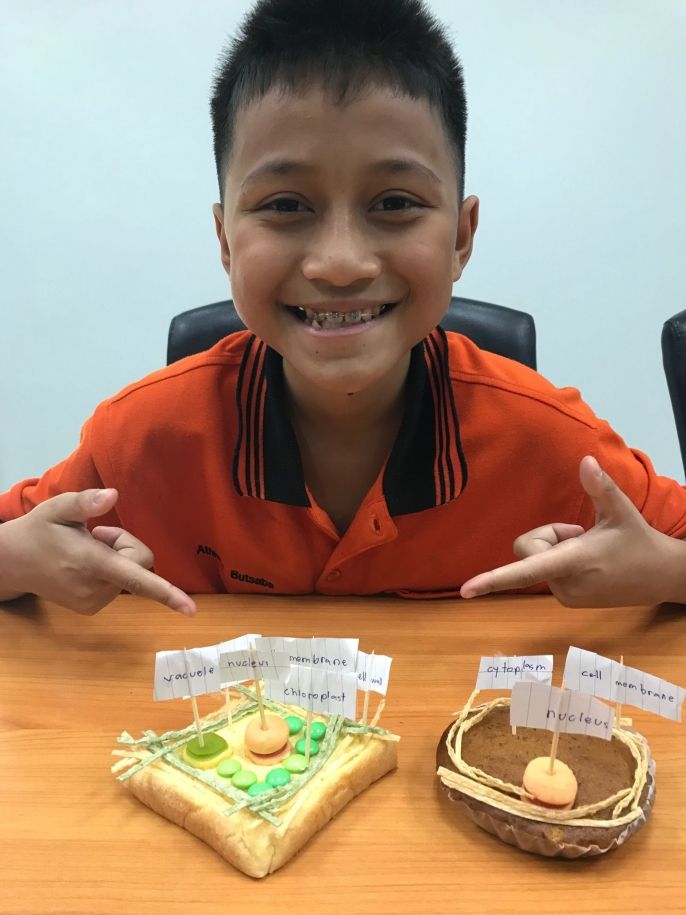Comparison of Thai and American Classrooms
I am a licensed teacher in America and taught Kindergarten and 1st grade in a Title One school in Charlotte, North Carolina. I care deeply about my profession and am constantly reflecting on my pedagogy and seeking opportunities for growth. Teaching in Thailand was something I sought out for many reasons, one of which was to grow in my abilities to teach English Language Learners.
Being a veteran teacher, I can be a little stuck in my ways. I use the data, I seek out the scientifically based interventions, and I have seen what works. However, in Thailand I have had to make some major adjustments, including teaching middle schoolers. Which has been stressful, humbling, aggravating, impactful, and ultimately grown me as a teacher.
Teachers in America share a common language we all know the buzz words “life-long learner” , “STEM” , “differentiation”, “stamina”, etc. These were so second nature to me I didn’t realize they were cultural. I didn’t realize teaching methods, learning style, and behavior management were all cultural. Like I said, it’s been an adjustment.
Where America is individualistic, Thailand is communal. Neither are good or bad they just are (embrace this mantra for classroom zen). Thai students have no embarrassment about singing karaoke on the spot, dancing in front of their peers, or performing a skit because they don’t feel individualistic embarrassment. If they “mess up” it would be on the group not the individual. Thai students love to play games and have competitions and do not get upset if they lose. Because of the communal culture as long as someone is a winner then everyone's a winner. However, this also means that cheating/ copying/ plagiarism is RAMPANT. In a communal culture they see no issue in sharing the knowledge, answers, etc. It can be very difficult to explain your expectation on why you will not allow that in your classroom.
Thai students take their education very seriously. In America our students define themselves by their outside activities “I’m a football player” “I am in Model UN!” In Thailand being a student is their identity and it is their full time job. Students will be at school until 4 pm (if not much much later) and then go to after school tutoring. This isn’t because they aren’t doing well in their classes it is to acquire additional knowledge and get ahead. I was initially nervous this would make Thai students competitive, stressed, and exhausted. However, I have found the opposite to be true. Because their only responsibility is to their school work and they don’t have time constraints they embrace taking breaks, the occasional (often) class cancellation, and enjoying just being on campus. They truly love to be at school.
Thai students are happy, silly, creative, and incredibly resilient. In America, I struggled with preventing frustration and dealing with its aftermath. In Thailand, my students have never shown any discouragement from being incorrect or having to redo something multiple times.
Thailand is a “mai bpen rai” culture which means it is ok. Coming from an American classroom where we are taught to do everything with a sense of urgency and drilled to be purposeful, efficient, and standards based this can be a difficult adjustment. Objectives, deadlines, and expectations can be at best, unclear and at worst, nonexistent in your Thai classroom. I choose to deal with this by embracing the years of my life that are being added on by not having workplace stress. Your classes will be cancelled, you will be interrupted, you will not be told things, and you will feel in the dark and without guidance. Trust in yourself, you know your students and what is in their best interest. So, embrace your class cancellation go to the school’s 5th dance competition of the semester and enjoy watching your students be kids!
In terms of materials and supplies every school placement in Thailand is different. All I have is the computer that I brought, a conference table, and occasionally some paper. I like to call it “guerilla” teaching. Coming from an American classroom filled with manipulatives, supplies, and resources this was a shock to the system. Again, just trust yourself and know that while those things definitely help they are not necessary for instruction. While Thailand is still very much in the teaching style of “Sage on the Stage” , it is ok to bring in the more hands on teaching strategies we implement in our American classrooms. I would suggest talking to your coordinator about how to get the supplies you need or picking up things you know would make your lesson better at the store/market.
Thailand and American classrooms are different in every way except one, and it’s a big one, kids are kids. You will laugh with them, love them, and you will make a difference in their lives. Focus on that and the rest won’t matter. Different isn’t good or bad it is just different!
Related Posts
Unexpected Things I Wish I Knew Before Moving to Thailand: The Ultimate Guide to Living in Thailand
I'm sure you've read enough big-picture descriptions of daily life as an American expat living in Thailand. Now, indulge in some of the quirks and seemingly small idiosyncrasies that define daily life here, based on my personal experience living right outside of Bangkok.

Teaching English Abroad: Thailand vs. Hungary Comparison
Meet Sarah- a CIEE Teach Abroad & TEFL Alum! 😊 Hi, I’m Sarah! I’m originally from New Jersey, but for the last 4 years I have been traveling all over... keep reading

Rewriting My Top 10 Reasons: What a Year in Thailand Taught Me
Revisiting my First Blog Post If you scroll through my blog posts, you will find my first post: Why to Teach English in Thailand: My Top 10 Reasons. For anyone... keep reading

